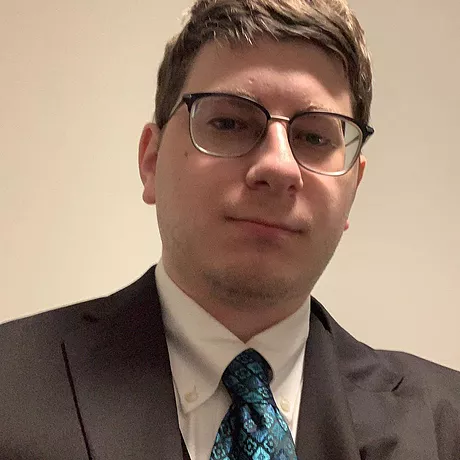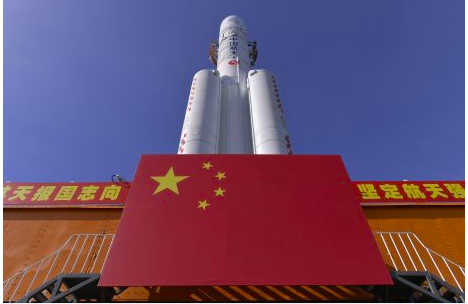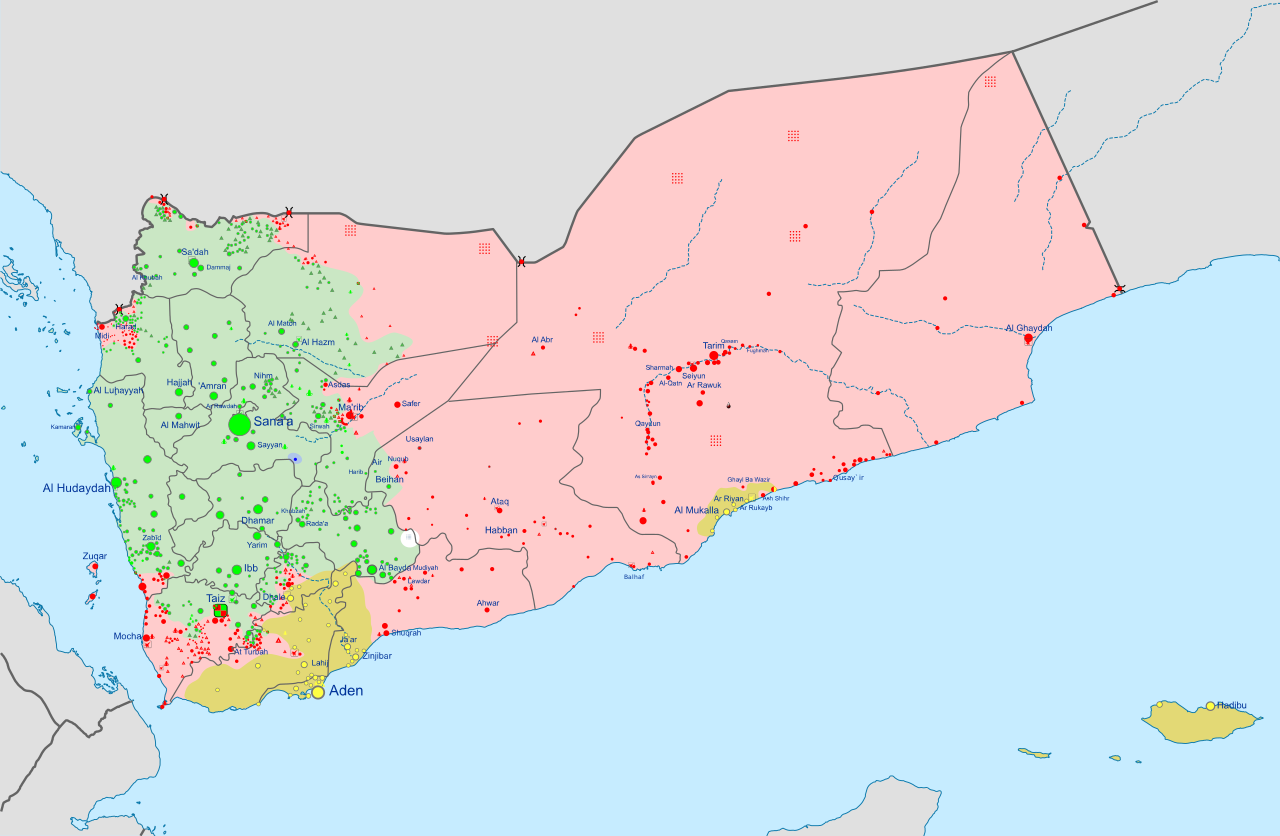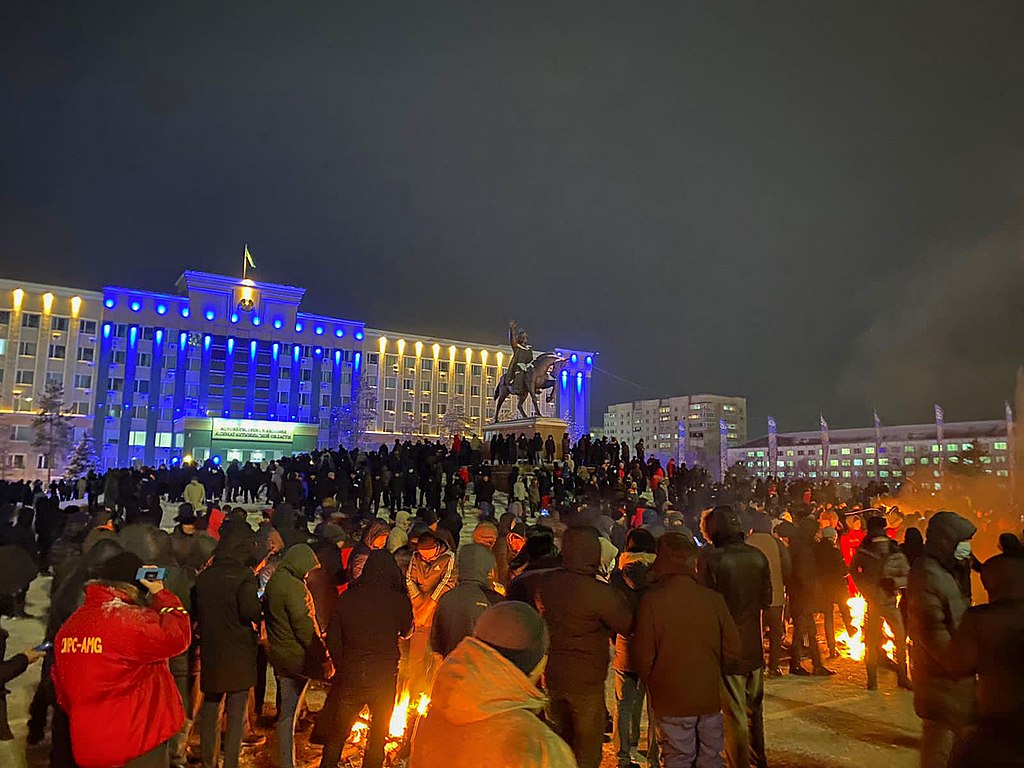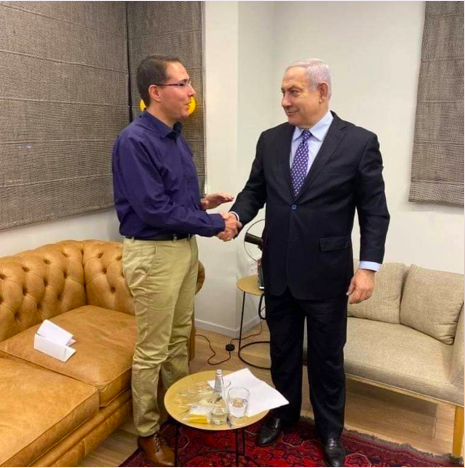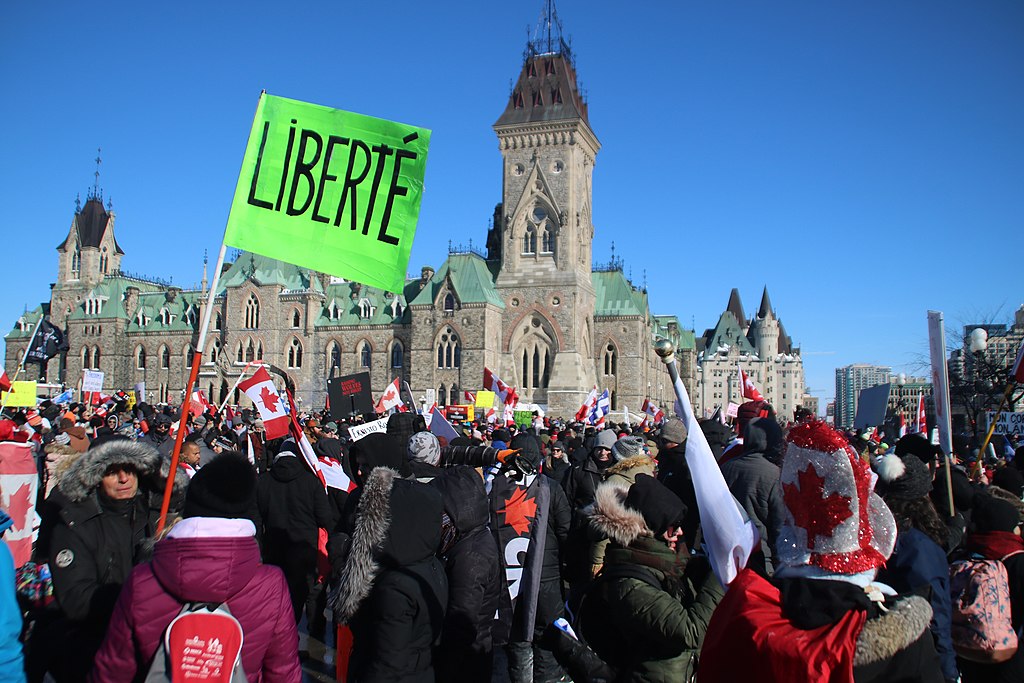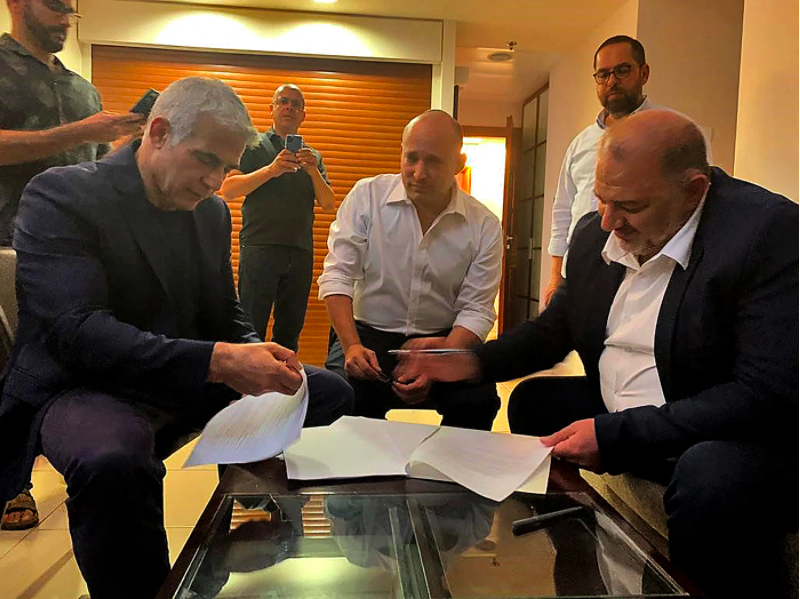
Israel In A New Middle East: Israeli Coalition Politics
The Abraham Accords, which are the series of agreements by various Sunni Islamic states to sign normalization deals with the State of Israel, were a major diplomatic breakthrough in the annals of the Arab Israeli conflict. The Accords did not touch upon the Israeli-Palestinian conflict, nor do they mean the end of regional violence and instability but it does signal a regional shift of the main Arab focus of struggle away from Israel. As of January 13, 2022, Israel is still reportedly engaged in behind the scenes talks to expand the number of states that recognize the Jewish state. This sea change in Middle Eastern politics was not accomplished through the Oslo peace process, which was supposed to usher in a “New Middle East” as was envisioned by the late former Israeli foreign minister (as well as prime minister and president) Shimon Peres of regional stability, prosperity, and integration through resolving the Israeli-Palestinian conflict first. Instead, this breakthrough was achieved as a consequence of Arab regional power rivalry with Iran and to a lesser degree with Turkey. Indeed, since the Arab Spring, Israel has not been seen as the reflexive principal peril to the Arabs by the Arab public in some states as nations like Iran have come under increasing scrutiny. In Israel itself a domestic sea change has followed the foreign one. The current government of Israel is also the first government to include an independent Arab party (the United Arab List/Ra’am) in its coalition. The matter of how this dynamic of an Arab coalition partner sees itself in the political system of the Jewish state and how this works (or does not work) with the government is the subject matter of this article.
Mansour Abbas, the head of the Islamist United Arab List party, made an astonishing statement at a Globes conference in December on how he views the relationship between his party’s agenda and the State of Israel in general. He stated that, “Israel was born as a Jewish state. And that was the decision of the Jewish people, to establish a Jewish state. The question is not ‘what is the identity of the state?’ That’s how the state was born, and so it will remain… This is the reality. The question is not about the state’s identity — but what the status of Arab citizens will be in it.” He has also echoed these sentiments in Arabic. This exact statement is not the full-on recognition of the legitimacy of the Jewish state and of the Jew’s claim to the land of Israel that persons like Dr. Mordechai Kedar opine that Abbas should make. It is, however, an improvement over the old rejectionist line of trying to fundamentally erase the structural nature of the Jewish state like attempting to remove or revise the national anthem, which is about the 2,000 year old yearning of Jews for national independence. In other words, while Abbas, who ran on providing policing and infrastructure to Arab communities, may not embrace that identity of the state he lives in, he acknowledges that it is what it is and does not seek to change things in that respect. Noting this, Mansour’s comments have been meet by consternation and condemnation by a former chairman of his own party, by members of the Joint List, which is the other Arab majority party in the Israeli parliament, by Hamas, and even by the president of the Palestinian Authority himself.
Abbas has accomplished much in his time in government with respect to his promises. To alleviate the high crime rate in Arab communities, the government has agreed to a five-year plan that will cost $9.4 billion to improve socio-economic conditions there as well as fund a separate $780 million program that will seek to directly address the current crime wave in these areas. Abbas has also secured the passage of a controversial Electricity Law, which directs the state to connect homes that were illegally built by Israeli Bedouins in the Negev (Israel’s southern desert) to the nation’s water and electricity grids. The law in question has its critics who ponder the vagueness of how many people are to be covered under this new law as well as the unequal application of the law to the Bedouin while not extending the same rights to those Jews whom the Israeli government deems to have illegally build homes in the West Bank (also known as Judea and Samaria).
There are, however, limitations to this newfound spirit of cooperation that Abbas has struck with the government as it relates to his own community’s relationship to the state. The United Arab List has threatened to leave the government (and thus collapse the government) in reaction to the recent January protests and riots by the Bedouin, who are a key component of the party’s voters, in the Negev over afforestation projects by the Jewish National Fund. The Jewish National Fund is a quasi-governmental body tasked with land reclamation, afforestation, and general assistance to Jewish settlement. The chief controversy of the dispute revolves around whether the territory in question that the Jewish National Fund is working on is state property (which the Fund claims) or private Bedouin property (which the protestors claim). This question over the demarcation of property between the Bedouins, who traditionally led a nomadic lifestyle that has made establishing fixed and well documented private property for them difficult, and the state is a long-standing issue in Israel. In fact, this is an issue that long predates the Jewish State, and it is an issue that has relevance not only in Israel but in the wider Arab world of how to settle or deal with the Bedouin (and other groups). An announcement was made on January 12th that a compromise was reached where the current afforestation project would be stopped and that the government would try to craft a new afforestation plan.
Nevertheless, this compromise in addition to the aforementioned law on providing electricity to illegal Bedouin communities in the Negev have led to detractors of the new government arguing that such concessions may only further diminish the rule of law in these places by encouraging the Bedouin to increase their illegal building activity in the Negev and effectively block the capacity of the state to assert its own sovereignty in these communities. Indeed, one general in the army reserves commented that if the rule of law continues to deteriorate then “we [Israel] will lose the Negev in another year or two.” The matter of whether the United Arab List can be an effective bridge between the Arab community and Israel by forging a new and lasting consensus on how to resolve issues that touch on various strong political sensibilities is still to be determined. It is even questionable whether the United Arab List can make such lasting contributions by remaining in the current government, which if the polls are to be believed is unpopular and is seen to be losing seats if elections were held now.
That Mansour Abbas would choose to instead partner with Netanyahu (or his successor in the Likud party), whom the country by a plurality sees as a more preferential option than the current coalition, should not be seen as a totally absurd idea. For one thing, Abbas’s party has been shown by recent events to be pragmatic with whom they ally with as they did end up partnering with Yamina, a right-wing pro-settler party, and a number of other right-wing parties to form the current government. For another, Netanyahu has shown himself to be amenable on certain issues that concern the Arab community like on economic development and fighting crime. It was after all under Netanyahu that a $3.84 billion five-year plan was approved to develop minority communities and $32 million was pledged to fight general violence and organized crime in Arab communities. Indeed, in the last election Netanyahu tried to court the Arab vote and tried to get Abbas on board with forming a coalition with him. A more ideologically compact coalition with the right and the religious given the current political climate in Israel might ultimately be more sustainable with the public at large.
Whether Abbas does jump ship or not, the mode of Israeli politics like the mode of Middle East politics through the Abraham Accords and the spirit of practical normalization it has engendered has been altered. With regard to Israeli politics, it has been changed with an independent Arab party joining a government on a pragmatic basis. While Abbas has demonstrated that tangible things can be gained for the Arab community by being a part of the government, there are questions about how long the governent can last and about how to address the particular problems that beset the Arab community without creating a disconnect between the government and the public. For instance, if such riotous behavior continues and increases among the Bedouin after such concessions by the government then the public at large is likely to become more dismissive of the demands by this community. The public may also question the government over the substance of what the government agreed to like over the unequal application of law under the Electricity Law. Furthermore, if the proposed solutions to these demands by the government, which is composed of a multiplicity of ideologies, veers too leftward then this will alienate the segment of the population that might vote for the more right-wing elements of the government and vice versa. In any case, the question of how to better integrate the traditional state interests with Arab demands while not alienating the mostly Jewish populace is an open one. Providing that Abbas keeps these demands pragmatic then this integration has a greater chance of success.
